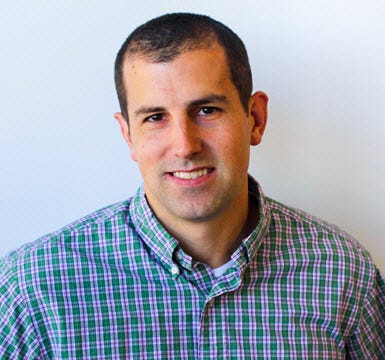Is the Product Management Role Under Fire? - with John Zilch (Part 1)
The Evolution, Challenges and Future of Product Management Role
The role of Product Management has dramatically transformed over the past two to three decades. Today, it stands at a crossroad, facing new challenges and uncertainties.
To dive deeper into this topic, we spoke with John Zilch, a passionate product leader with over a decade of product experience in various product roles. John's journey in Product Management is insightful and inspiring. He shared his personal experiences and unique perspective on the evolution of the Product Management field.
John began his career in project management and business analysis before transitioning into Product Management, a field he has passionately pursued for the last 10-12 years. “I felt it was my calling. I love working closely with customers and collaborating across various organizational functions,” he said.
John has held product roles at various companies in different stages, most recently serving as the Senior Director of Product Management at SugarCRM. He is now the founder of Breakthrough Ventures, providing Fractional Product Management and Product Marketing Services to software companies.
A few years ago, John also discovered his passion for teaching. He is now teaching Product Management courses to undergraduate students at Providence College, a role he greatly enjoys combining with his fractional CPO responsibilities.
If you want to connect with John and explore more of his insights into Product Management, be sure to check out his writings on Build it Ship It.
John, how has the role of a Product Manager evolved since you started your career?
My journey as a Product Manager began more than a decade ago. Reflecting on those early days, I realize that my responsibilities were more aligned with a Product Owner rather than a true Product Manager. I spent considerable time within the office rather than engaging directly with customers. My primary tasks involved attending standups and working directly within a scrum room alongside engineering teams.
Historically, I think the Product Owner role, which still exists in many organizations, was more process-oriented. A lot of time was spent on scrum ceremonies and collaborating with engineering teams to ensure efficient execution.
Over the years, we’ve seen a noticeable shift towards engaging more with customers. And this shift aligns well with the original intent of the Agile Manifesto, which emphasizes creating working software through customer collaboration.
Is the role of a Product Manager clearly understood across different organizations?
Absolutely not.
The responsibilities of a Product Manager vary widely across organizations. Throughout my career, I've observed that these responsibilities can differ significantly, even at higher levels such as mid-manager or director positions. These differences are often influenced by the specific team and organizational structure.
In some organizations, Product Managers focus on technical tasks, leading engineering teams, completely isolated from customers. In other cases, they are responsible for prioritizing backlog items, leaning towards a Product Owner role. Other Product Managers focus more on design work. Essentially, they need to fit where there is a need.
The true role of product management is to focus on managing and aligning the product strategy with the company direction. This involves facilitating conversations, ensuring everyone is aligned and excited about the direction, and understanding how specific product decisions contribute to broader corporate objectives.
The most effective Product Managers are those who understand the impact of the product on the company's goals, rather than just responding to customer demands in isolation.
With today’s complex market dynamics, it seems that the Product Management role is under fire. What is your perspective on this?
Despite its critical contributions, the Product Management role often doesn't receive the appreciation it deserves.
Product Managers contribute substantially to various departments like finance, sales, and marketing, yet their efforts are not always directly linked to clear, individual metrics.
For example, Product Managers play a crucial role in product adoption and user growth, but these successes are often attributed to design or marketing teams. Because of this, it is easy for their value to be overlooked by leadership.
I’ll share an interesting story from my first role as a Product Manager. We were only two Product Managers in the role. Once, my colleague and I were walking around when we noticed a pizza party hosted by the sales team. They invited us, and as we joined, I mentioned to my colleague: “While every team likes us and wants to work with us, we're never really part of any team celebrations.”
This nature of the Product Management role has made it an easy target during layoffs, particularly in times of economic downturns when companies need to expand profit margins. Especially the full-time product management role appears to be under significant pressure today.
Therefore, as the role continues to evolve, it must navigate these perceptions and seek to more clearly demonstrate its direct value to organizational success.
We might not have clear metrics like sales quotas or financial statements, but our work in aligning teams and driving product strategies is crucial.
Are there any interesting trends you see with Product Management as a result of this market dynamics?
I see a significant overlap between the work of product marketers and Product Managers.
In many places I've worked, there's often a disconnect between these roles. Product Managers typically hand off the roadmap to product marketers, who then take on a project management role for market launches. This isn't ideal. Both roles should be thinking about positioning, competitive space, and differentiation.
Given this overlap, I foresee these roles merging over time, especially as the lines between product strategy and marketing continue to blur.
We are already seeing this trend at some tech companies, like Airbnb, where Product Management is combined with Product Marketing. This is a trend I expect to see more frequently.
Some companies take the route to merge the CPO role and CTO role into CPTO. Is this a winning strategy?
I think it depends on the skill set of the leader.
Sometimes, product leaders come from a technical background and tend to lean towards technology. I've seen instances where a CPO with an affinity for technology was running the technology team. Ultimately, he moved to the CTO role because the product side wasn't getting sufficient attention.
In general, I think it is really hard to find someone who excels at both technology, architecture, cloud, and simultaneously thinks about the market and the strategic side of the product.
There are unicorns like that, but even in those cases, the stage of the company can be a determining factor. If both your technology and product teams are not mature enough, and you need to improve both sides at the same time, it can be a big stretch.
What advice would you give to someone considering a career in Product Management?
Do your homework first. Talk to people who have experience in the role and see if they still enjoy it. If you're targeting a specific company, reach out to current or former Product Managers there to get a sense of the work environment and culture.
Remember that Product Management varies significantly across organizations. So it's crucial to understand what you're getting into. We're still figuring out the best practices and standards for Product Management.
Many product leaders today didn't start in Product Management because the role either didn't exist or wasn't well-defined when they began their careers. This means you might find leaders from operations, technology, or other backgrounds who may not approach Product Management with the product mindset focused on discovery and analysis.
Find a company with a strategy that aligns with your ambitions, and even more importantly, a leader who understands and values Product Management.
We thank John for his great insights and the amazing advice.
In Part 2 of our interview with John, we delve deeper into John's unique role as a Fractional Chief Product Officer.
Enjoyed This Article? Subscribe and get more exclusive content on how to build and scale a successful product organisation.






